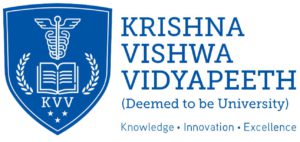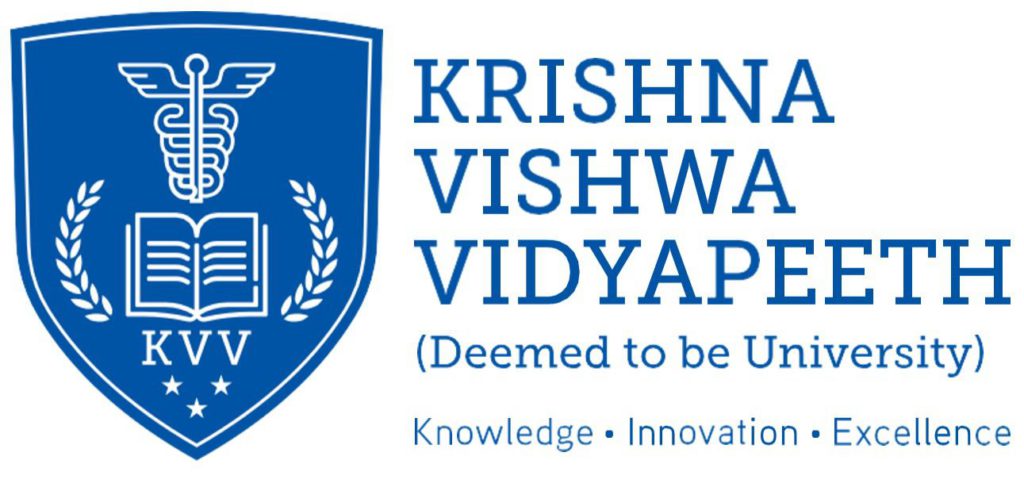Computer Technology
- About Department
- HoD Desk
- Faculty
- Programs offered
- Laboratories
- Faculty Achievements
- Placement
- Instructional Methods in Teaching Learning
- Best Practices
- Value Added Programs
- Publication,Patent,Copyright,Grants
- Student's Forum
- Student's Achievements
- Distinguished Alumni
- Events
- Center of Excellence
About Department
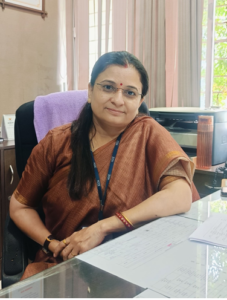
Dr. Kavita R. Singh
HOD, Department of Computer Technology
The Department of Computer Technology has consistently demonstrated improvement in academic achievements, placements, and research outcomes. Our curriculum is designed innovatively and regularly updated to align with industry needs and stakeholder expectations. We emphasize a balance between professional knowledge and personal skills, ensuring our students’ holistic development to meet the demands of the corporate and research sectors.
Our students gain hands-on experience in key areas sought after by the corporate world and research organizations through cutting-edge pedagogical methods. We provide a supportive learning environment with state-of-the-art infrastructure, including the recently established NVIDIA Centre of Excellence Lab, equipped with advanced hardware and software for research in AI, ML, DL, CV, IoT, and more.
Through industry-aligned electives, offered in collaboration with reputed companies, students receive a blend of core knowledge and exposure to emerging technologies. The department proudly hosts an approved ACM student chapter since 2008 and a CodeChef coding chapter, fostering a robust coding culture.
We encourage students to organize events like Compufest, a national-level technical fest, and to participate in various technical and co-curricular events at other institutions. Our students also engage in socially relevant activities. Many of our alumni secure prestigious positions in renowned companies both in India and abroad, while a significant number pursue higher studies at eminent institutions such as IITs, IISC, and IIMs.
Our department remains dedicated to its founding vision, striving to exceed corporate and research expectations consistently. Our graduates are recognized for their sincerity, intelligence, diligence, practical orientation, and effectiveness in diverse work environments.
The department’s success is reinforced by the numerous industries keen to engage with us for initiatives and campus recruitment. We invite you to join us on our journey to becoming a world-class centre of excellence in education, training, and research.
Sr. No. | Name of Faculty | Designation | Date of Joining | Nature of Association | Qualification |
1. | Dr. Kavita R Singh | HoD & Professor | 02-06-2008 | Regular | PhD |
2. | Dr. Manali M. Kshirsagar | Professor | 01-01-2020 | Regular | PhD |
3. | Dr. Arvind R. Bhagat Patil | Associate Professor, Dean (P & D), Director (IQAC) | 30-06-2008 | Regular | PhD |
4. | Dr. Shivkumar J. Karale | Assistant Professor | 25-06-2007 | Regular | PhD |
5. | Dr. Gauri M. Dhopavkar | Assistant Professor, I/C Centre of Excellence, AI & ML | 03-12-2008 | Regular | PhD |
6. | Dr. Rakhi D. Wajgi | Assistant Professor, Dean (T&P) | 15-12-2008 | Regular | PhD |
7. | Dr. Smita R. Kapse | Assistant Professor | 02-07-2010 | Regular | PhD |
8. | Dr. Roshni S. Khedgaonkar | Assistant Professor | 28-08-2008 | Regular | PhD |
9. | Dr. Gauri A. Chaudhary | Assistant Professor | 03-05-2019 | Regular | PhD |
10. | Nilesh U. Sambhe | Assistant Professor | 12-06-2009 | Regular | MTech |
11. | Dr. Prarthana A. Deshkar | Assistant Professor | 11-06-2012 | Regular | PhD |
12. | Praful V. Barekar | Assistant Professor | 13-05-2015 | Regular | MTech |
13. | Dr. Supriya Thombre | Assistant Professor | 09-12-2009 | Regular | PhD |
14. | Dr. Nikhil Mangrulkar | Assistant Professor | 21-06-2011 | Regular |
PhD |
15. | Roshan S. Bhanuse | Assistant Professor | 29-06-2011 | Regular | MTech |
16. | Dr. Ganesh K. Yenurkar | Assistant Professor | 10-07-2013 | Regular | PhD |
17. | Sanjay P. Pande | Assistant Professor | 01-08-2020 | Regular | MTech |
18. | Dr. Gendlal M. Vaidya | Assistant Professor | 1-08-2020 | Regular | PhD |
19. | Lata R. Tembhare | Assistant Professor | 15-07-2022 | Regular | MTech |
20. | Prachi Bainalwar | Assistant Professor | 17-10-2022 | Regular | ME |
21. | Shweta A. Gode | Assistant Professor | 23-03-2023 | Regular | ME |
22. | Dr. Piyush K. Ingole | Assistant Professor | 31-08-2024 | Regular | PhD |
23. | Akhil Jajulwar | Assistant Professor | 06-01-2025 | Regular | MTech |
| 1 | UG Programme- B.Tech in Computer Technology |
| 2 | PG Programme- M.Tech in Data Science |
| 3 | Ph.D Programme in Computer Science & Technology |
Laboratories
Major Equipment and Facilities
| LAB NO. | LAB NAME | LAB INCHARGE |
| Lab 1 | Software Engineering and Project Lab | Nilesh Sambhe |
| Lab 2 | PG Programming Lab | Roshni Khedgaonkar |
| Lab 3 | Computer Graphics and Web Tech Lab | Nikhil Mangrulkar |
| Lab 4 | DBMS Lab | Prarthna Deshkar |
| Lab 5 | PG Project and Research Lab | Ganesh Yenurkar |
| Lab 6 | Computer Programming Lab | Gendlal Vaidya |
| Lab 7 | Computer Networking Lab | Smita Kapse |
| Lab 8 | Advance Computer Programming Lab | Prachi Bainalwar |
Photos of Laboratories
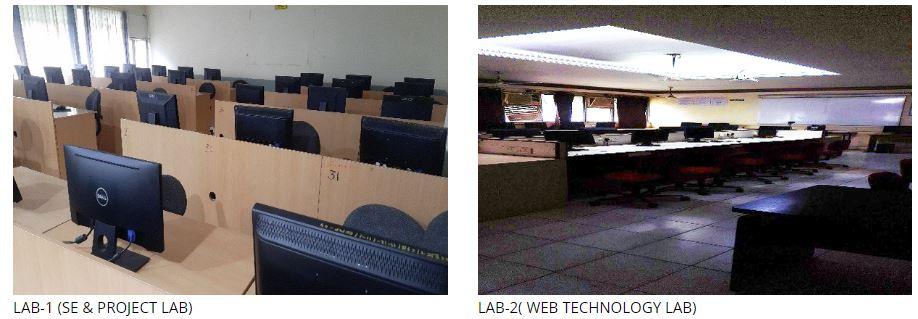
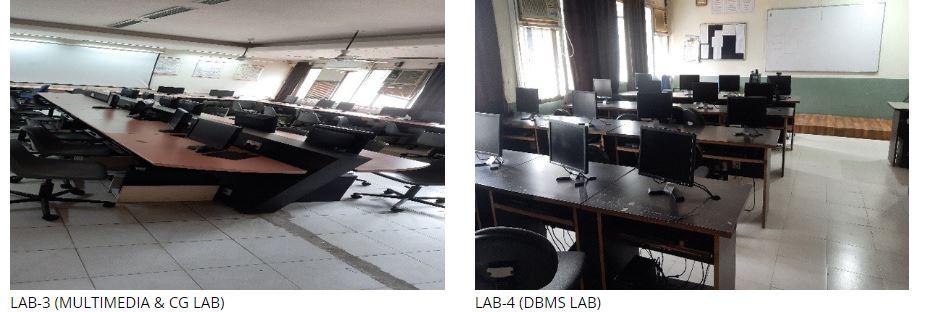
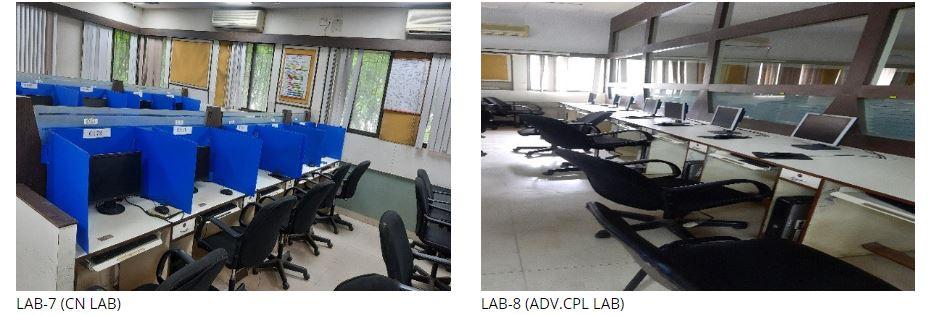
Major (Hardware) Equipments
- DELL 330 Optiplex core to duo 2.4GHz, 2GB RAM,160GB HDD, 17” TFT.
- DELL 360 Optiplex core to dual 2.8GHz, 2GB RAM, 160GB HDD, 18.5” TFT
- HCL DESKTOP INFINITY PRO BL1280, INTEL CORE 2DUO E7500,INTEL G31 CHIPSET
- I-BALL DESKTOP DUAL CORE 3GHz
- WIPRO MAKES DUAL-CORE 3.1GHZ PROCESSOR
- LENOVO M72e, INTEL CORE i3 3RD GENERATION, INTEL H61 MOTHERBOARD
- ACER VERITON 4TH GEN CORE i3-4130, CHIPSET H81
- ACER Make INTEL CORE i7 – 4770 CPU @ 3.40GHz
- Acer Veritron Desktop, Intel Core i5 4460 (3.2GHz), H81 Motherboard
- IBM WORKSTATION LENOVO MAKE E30-7783RW
- DELL T110 TOWER SERVER
- HP LAPTOP 430 CORE
- LCD PROJECTORS (HITACHI, EPSON)
- CISCO WIRELESS ACCESS POINT
- CISCO ACADEMY SETUP
- CISCO ROUTER 2921/K9 & ROUTER 1921/K9
- SAMSUNG TABLET
- SAMSUNG MOBILE
- L2 HP & NETGEAR SWITCHES
- HP SCANNERS
- SONY DIGITAL CAMERA AND CAMCORDER
- DELL VOSTRO i3 PROCESSOR BRANDED MACHINES
- HP MAKE WORKSTATION WITH NVIDIA GPU CARD
- DELL T20-TOWER SERVER INTEL XEON E3-1225 V3
- L3 HP NETWORK SWITCH
- CYBER FORENSIC KIT
- IOT LEVEL-1, LEVEL-2, LEVEL-3 KITS
- E-YANTRA KITS
Software
- MATLAB 2007, 2011,2012,2014,2017
- IBM RATIONAL ROSE
- ORACLE 11g
- MICROSOFT PROJECT PLANNER 2013
- VISUAL STUDIO 2008,2013,2015
- ENCASE CF SOFTWARE
- IoT VIDEOS
- ANTIVIRUS:- ESCAN
Open Source Softwares
- Java, Scilab, Mysql, Pentaho, Wireshark, Pktbuilder, Android Studio, Netbeans, Code-Blocks, Dev C++, Rstudio, Staruml, Anaconda, Python, Python, Cisco Packet tracer , Prolog, etc.
Open Source Operating Systems
- Redhat, Centos, Ubuntu
Servers
- Windows 2008- backup server, Linux -Samba server
Faculty Achievements
- Dr. Rakhi D. Wajgi (PI) and N. Mangrulkar(CO-PI) received a research proposal grant of Rs.3,00,000 under the University Research Project Scheme in March 2024.
- A patent was granted to Smita Kapse in April 2024.
- Prof. Nikhil Mangrulkar has received NPTEL Online certification on NBA Accreditation and Teaching-Learning in Engineering (NATE), Elite Silver in Jan-Apr. 2022.
- Prof. Smita Kapse has received NPTEL Online certification on NBA Accreditation and Teaching-Learning in Engineering (NATE), Elite Silver in Jan-Apr. 2022.
- Prof. Nilesh Sambhe has received NPTEL Online certification on Research Methodology, Elite Silver in Aug-Oct. 2023.
- Shivkumar Jaywantrao Karale published a book “Language Processors” in year 2021. (Raja Rammohun Roy National Agency ISBN Number: 978-93-340- 0650-6)
- Dr. A R Bhagat Patil published a book “Textbook of Quality Assurance” in the year 2023. (Shashwat Publications, ISBN: 978-93-6087-412-4)
- Dr. A R Bhagat Patil published a book “AI Based Cyber Security” in the year 2024. (Infinite Research, ISBN: 978-81-979122-9-0)
- Dr. Gauri Dhopavkar published a book “A textbook of Artificial Intelligence Algorithms using Python” in the year 2024. (RK Publications, ISBN: 978-93-48655-98-1)
Placement
Sesion 2024-25
Sesion 2023-24
Sesion 2022-23
Sesion 2021-22
Innovative Teaching Learning Method
(Link for critique review: https://forms.gle/XsxmskxfcMQdDjFq5)
Faculty Innovations in T-L (2023-2024) | |||||||
EVEN SEMESTER | |||||||
SR NO | Section | Innovative Method Adopted | Name of Faculty | Course Name | Sem. (6/4) | Outcome after the implementation of Innovative method | No. of Beneficiary |
1 | A & B | Tool-based activity: PowerBI | Dr. Kavita Singh | Mathematical Foundation of Data Analytics | 4 | Students were able to write report on data visualization achieved using Power BI | 155 |
2 | B | Tool based activity: JFLAP | Roshan Bhanuse | Theoretical Foundation of Computer Science | 4 | By using JFLAP student will get an interactive visualization for formal languages. This will help the students to learn the concepts easily. | 74 |
3 | A & B | Class test based on Gate Questions | Lata Tembhare, Nilesh U. Sambhe | Operating System | 4 | Students got aware about recent Gate questions. | 148 |
4 | A & B | Springboard certification on Data Structures and Algorithms using Python-Part2 | Roshni Khedgaokar Prachi A. Bainalwar | Design and Analysis of Algorithms | 6 | By using Online course and appearing for course student will get more knowledge about algorithms and design. This will help the students to learn the concepts easily | 150 |
5 | A & B | Spring board certification | Shweta Gode | Software Engineering | 6 | Students understood the complete SDLC process and industry based implementing and understanding of CI/CD Pipeline repository. | 138 |
6 | B | Coding based learning | Nikhil Mangrulkar | Language Processor | 6 | Students are capable of writing program using compiler generator tools | 71 |
7 | A & B | Research based Case Study Report Writing | Dr. Kavita R Singh | Machine Learning | 6 | Students are Able to Prepare paper on innovative research topic. | 140 |
Faculty Innovations in T-L (2023-2024) | |||||||
ODD SEMESTER | |||||||
Sr. No | Section | Innovative Methodology | Name of Faculty | Course Name | Sem. | Outcome after the implementation of Innovative method | No. of Beneficiary |
1 | A | Implementation through Virtual lab | Ganesh K.Yenurkar | Computer Architecture Organization | 3 | Virtualization Lab Simulation: Students have learned how to build the Booths multiplier Simulation by performing multiplication of 02 integer numbers and other assignments | 76 |
2 | B | Project based learning | Praful Barekar | Database Management System | 3 | Students develop deeper-level thinking and problem-solving skills as they work through a project. | 74 |
3 | A | Network designing using cisco packet tracer simulation tool | Smita Kapse | Computer Networks | 5 | Relate the concepts of computer networking by implementing Different application | 70 |
4 | A | NPTEL Course-based assignment ,Complex problem Solving | Roshan Bhanuse | Theoretical Foundation of Computer Science | 5 | NPTEL Assignment can help them gain a deeper understanding of the subject. Students can better prepare for GATE questions by tackling difficult problems. | 68 |
5 | A | Research based Case Study | K. R. Singh | Machine Learning | 5 | Students are Able to Prepare paper on innovative research topic. | 50 |
6 | ALL | Infosys Springboard certification on Artificial Intelligence. 2) Tool based Learning Activity. | Roshni Khedgaonkar | OE-II: Foundation of AI | 5 | By using Online course and appearing for exam, student will get more knowledge about AI. This will help the students to learn the concepts easily | 49 |
7 | A & B | Infosys Springboard Certification on GIS | Prachi Bainalwar | PE: Introduction to Geographical Information | 5 | By using Online course and appearing for course student will get more knowledge about GIS. This will help the students to learn the concepts easily. | 48 |
8 | ALL | NPTEL course -based assignment on Data Science 2) Group based learning activity. | ShwetaGode | OE 1: Introduction to Data Science | 5 | Infosys Spring board certification helped them cover depth knowledge of the subject, Students developed the ability to work as a team and present the tools assigned to their group. | 48 |
9 | A & B | Project based learning | P V Barekar | Dot Net.Full Stack Development | 5 | Students develop deeper-level thinking and problem-solving skills as they work through a project. | 47 |
10 | B | Complex Problem Solving Group Assignment | R S Bhanuse | Theoretical Foundation of Computer Science | 5 | Students understood the topic more properly. They are able to solve problems. Learning in groups means that one needs to share his knowledge and ideas with other students. There are two benefits from doing this: before sharing the idea one needs to think carefully about his own ideas in order to explain them to others. | 69 |
11 | A & B | Group project based learning | Nikhil S. Mangrulkar | Advanced Web Technologies | 5 | Students develop deeper-level thinking and problem-solving skills as they work through a project. | 45 |
12 | ALL | Tool based learning | Ganesh Yenurkar | OE-I Introduction to Sales force | 5 | Students got comfortable with Sales force | 53 |
13 | B | Network designing on cisco packet tracer simulation tool | Sanjay P.Pande | Computer Networks | 5 | Relate the concepts of computer networking by implementing Different application | 75 |
14 | A | Infosys springboard certification on Cryptography and Network security | NileshSambhe | Network Security | 7 | By using Online course and appearing for course student will get more knowledge about encryption algorithms. This will help the students to learn the concepts easily. | 73 |
15 | A | NPTEL/ Infosys springboard/ Coursea Certificate course | Supriya Thombre | Artificial Intelligence | 7 | Students can solve multiple problems framed by IIT Madras based on each topic. | 74 |
16 | A | Game Designing | SupriyaThombre | Artificial Intelligence | 7 | Students can able to identify the suitable AI technique and able to apply it in real word game designing. This will also contribute in Life Long Learning. | 74 |
17 | B | Game Designing | R S Khedgaonkar | Artificial Intelligence | 7 | Students can able to identify the suitable AI technique and able to apply it in real word game designing. This will also contribute in Life Long Learning. | 49 |
18 | A & B | Project Based learning | P Deshkar | Java Full Stack | 7 | Students will be able to develop the solution using Java FSD framework for any real life problem | 49 |
19 | A & B | Cloud Services implementation | G K Yenurkar | Cloud Computing | 7 | Students are Able to understand the use of cloud computing platform, Able to use the cloud computing services. | 50 |
20 | A & B | Infosys Springboard certification on BI – Business Intelligence and Design a multidimensional data model. | Shweta Gode | Business Intelligence | 7 | By using Online course and appearing for course student will get more knowledge about different tools of BI. This will help the students to learn the concepts easily | 49 |
20 | A & B | Research Paper based case study | Sanjay P Pande | Embedded System | 7 | Students are Able to Prepare paper on innovative research topic. | 40 |
21 | A & B | Research Paper based case study | R S Khedgaonkar | Neural Network Fuzzy Logic | 7 | Students are Able to Prepare paper on innovative research topic. | 49 |
22 | A & B | Infosys springboard certification on DM | Shweta Gode | Data Mining | 7 | By using Online course and appearing for course student will get more knowledge about data mining algorithms, and tools. This will help the students to learn the concepts easily. | 49 |
23 | A & B | Tool exploring activity | Nilesh U. Sambhe | Adhoc Wireless Network | 7 | Students got comfortable with Networking Tools | 49 |
24 | A & B | Word Cloud | Rakhi Wajgi | Advanced Web Technologies | 7 | Students learnt data visualization using Word Cloud. | 51 |
25 | B | Infosys springboard certification on Cryptography and Network security | Lata Tembhare | Network Security | 7 | Certification: Students have learned security concepts. 2. Flipped Classroom: The flipped classroom gives more freedom to students to watch NPTEL Video lectures in a self-paced manner to appear for the quiz based on the video provided. | 74 |
Best Practices
Sr. No. | Best Practices of the Department |
1 | NPTEL/SWAYAM Certification by students and Faculty : Students and Faculty are encouraged and guided to complete NPTEL/SWAYAM certification of courses through reward mechanism. |
2 | Shadow Teaching by fast learners to slow learners. Fast /Slow learners are Identified and support is provided to them for excellence. |
3 | Coding Club: Codechef approved campus chapter, “Codingclub YCCE” promotes various activities for coding skill enhancement of students. |
4 | Mentor-Mentee: Senior faculties are allotted as Mentor to the junior faculties for knowledge sharing. |
5 | Academia- Industry/Research Organization Association: Association between Academia and Industry/Research Organization is strengthened through Professional Elective offering, Internships, Live Projects. |
6 | Innovative Teaching Learning Method: To become well known centre for pursuing computer education, various Innovative Teaching Learning methods are adopted by faculty members such as coding challenges, case study, project based learning etc. |
Innovative Teaching Learning Method:
EVEN Term 2023-24
| Faculty Innovations in T-L (2023-2024) | |||||||
| EVEN SEMESTER | |||||||
| SR NO | Section | Innovative Method Adopted | Name of Faculty | Course Name | Sem. (6/4) | Outcome after the implementation of Innovative method | No. of Beneficiary |
| 1 | A & B | Tool-based activity: PowerBI | Dr. Kavita Singh | Mathematical Foundation of Data Analytics | 4 | Students were able to write report on data visualization achieved using Power BI | 155 |
| 2 | B | Tool based activity: JFLAP | Roshan Bhanuse | Theoretical Foundation of Computer Science | 4 | By using JFLAP student will get an interactive visualization for formal languages. This will help the students to learn the concepts easily. | 74 |
| 3 | A & B | Class test based on Gate Questions | Lata Tembhare, Nilesh U. Sambhe | Operating System | 4 | Students got aware about recent Gate questions. | 148 |
| 4 | A & B | Springboard certification on Data Structures and Algorithms using Python-Part2 | Roshni Khedgaokar Prachi A. Bainalwar | Design and Analysis of Algorithms | 6 | By using Online course and appearing for course student will get more knowledge about algorithms and design. This will help the students to learn the concepts easily | 150 |
| 5 | A & B | Spring board certification | Shweta Gode | Software Engineering | 6 | Students understood the complete SDLC process and industry based implementing and understanding of CI/CD Pipeline repository. | 138 |
| 6 | B | Coding based learning | Nikhil Mangrulkar | Language Processor | 6 | Students are capable of writing program using compiler generator tools | 71 |
| 7 | A & B | Research based Case Study Report Writing | Dr. Kavita R Singh | Machine Learning | 6 | Students are Able to Prepare paper on innovative research topic. | 140 |
ODD Term 2023-24
| Faculty Innovations in T-L (2023-2024) | |||||||
| ODD SEMESTER | |||||||
| Sr. No | Section | Innovative Methodology | Name of Faculty | Course Name | Sem. | Outcome after the implementation of Innovative method | No. of Beneficiary |
| 1 | A | Implementation through Virtual lab | Ganesh K.Yenurkar | Computer Architecture Organization | 3 | Virtualization Lab Simulation: Students have learned how to build the Booths multiplier Simulation by performing multiplication of 02 integer numbers and other assignments | 76 |
| 2 | B | Project based learning | Praful Barekar | Database Management System | 3 | Students develop deeper-level thinking and problem-solving skills as they work through a project. | 74 |
| 3 | A | Network designing using cisco packet tracer simulation tool | Smita Kapse | Computer Networks | 5 | Relate the concepts of computer networking by implementing Different application | 70 |
| 4 | A | NPTEL Course-based assignment ,Complex problem Solving | Roshan Bhanuse | Theoretical Foundation of Computer Science | 5 | NPTEL Assignment can help them gain a deeper understanding of the subject. Students can better prepare for GATE questions by tackling difficult problems. | 68 |
| 5 | A | Research based Case Study | K. R. Singh | Machine Learning | 5 | Students are Able to Prepare paper on innovative research topic. | 50 |
| 6 | ALL | Infosys Springboard certification on Artificial Intelligence. 2) Tool based Learning Activity. | Roshni Khedgaonkar | OE-II: Foundation of AI | 5 | By using Online course and appearing for exam, student will get more knowledge about AI. This will help the students to learn the concepts easily | 49 |
| 7 | A & B | Infosys Springboard Certification on GIS | Prachi Bainalwar | PE: Introduction to Geographical Information | 5 | By using Online course and appearing for course student will get more knowledge about GIS. This will help the students to learn the concepts easily. | 48 |
| 8 | ALL | NPTEL course -based assignment on Data Science 2) Group based learning activity. | ShwetaGode | OE 1: Introduction to Data Science | 5 | Infosys Spring board certification helped them cover depth knowledge of the subject, Students developed the ability to work as a team and present the tools assigned to their group. | 48 |
| 9 | A & B | Project based learning | P V Barekar | Dot Net.Full Stack Development | 5 | Students develop deeper-level thinking and problem-solving skills as they work through a project. | 47 |
| 10 | B | Complex Problem Solving Group Assignment | R S Bhanuse | Theoretical Foundation of Computer Science | 5 | Students understood the topic more properly. They are able to solve problems. Learning in groups means that one needs to share his knowledge and ideas with other students. There are two benefits from doing this: before sharing the idea one needs to think carefully about his own ideas in order to explain them to others. | 69 |
| 11 | A & B | Group project based learning | Nikhil S. Mangrulkar | Advanced Web Technologies | 5 | Students develop deeper-level thinking and problem-solving skills as they work through a project. | 45 |
| 12 | ALL | Tool based learning | Ganesh Yenurkar | OE-I Introduction to Sales force | 5 | Students got comfortable with Sales force | 53 |
| 13 | B | Network designing on cisco packet tracer simulation tool | Sanjay P.Pande | Computer Networks | 5 | Relate the concepts of computer networking by implementing Different application | 75 |
| 14 | A | Infosys springboard certification on Cryptography and Network security | NileshSambhe | Network Security | 7 | By using Online course and appearing for course student will get more knowledge about encryption algorithms. This will help the students to learn the concepts easily. | 73 |
| 15 | A | NPTEL/ Infosys springboard/ Coursea Certificate course | Supriya Thombre | Artificial Intelligence | 7 | Students can solve multiple problems framed by IIT Madras based on each topic. | 74 |
| 16 | A | Game Designing | SupriyaThombre | Artificial Intelligence | 7 | Students can able to identify the suitable AI technique and able to apply it in real word game designing. This will also contribute in Life Long Learning. | 74 |
| 17 | B | Game Designing | R S Khedgaonkar | Artificial Intelligence | 7 | Students can able to identify the suitable AI technique and able to apply it in real word game designing. This will also contribute in Life Long Learning. | 49 |
| 18 | A & B | Project Based learning | P Deshkar | Java Full Stack | 7 | Students will be able to develop the solution using Java FSD framework for any real life problem | 49 |
| 19 | A & B | Cloud Services implementation | G K Yenurkar | Cloud Computing | 7 | Students are Able to understand the use of cloud computing platform, Able to use the cloud computing services. | 50 |
| 20 | A & B | Infosys Springboard certification on BI – Business Intelligence and Design a multidimensional data model. | Shweta Gode | Business Intelligence | 7 | By using Online course and appearing for course student will get more knowledge about different tools of BI. This will help the students to learn the concepts easily | 49 |
| 20 | A & B | Research Paper based case study | Sanjay P Pande | Embedded System | 7 | Students are Able to Prepare paper on innovative research topic. | 40 |
| 21 | A & B | Research Paper based case study | R S Khedgaonkar | Neural Network Fuzzy Logic | 7 | Students are Able to Prepare paper on innovative research topic. | 49 |
| 22 | A & B | Infosys springboard certification on DM | Shweta Gode | Data Mining | 7 | By using Online course and appearing for course student will get more knowledge about data mining algorithms, and tools. This will help the students to learn the concepts easily. | 49 |
| 23 | A & B | Tool exploring activity | Nilesh U. Sambhe | Adhoc Wireless Network | 7 | Students got comfortable with Networking Tools | 49 |
| 24 | A & B | Word Cloud | Rakhi Wajgi | Advanced Web Technologies | 7 | Students learnt data visualization using Word Cloud. | 51 |
| 25 | B | Infosys springboard certification on Cryptography and Network security | Lata Tembhare | Network Security | 7 | Certification: Students have learned security concepts. 2. Flipped Classroom: The flipped classroom gives more freedom to students to watch NPTEL Video lectures in a self-paced manner to appear for the quiz based on the video provided. | 74 |
Faculty Innovations in T-L (2022-2023) | ||||||
EVEN SEMESTER | ||||||
Sr. No. | Innovative Methodology | Name of Faculty | Course Name | Semester | Outcome | No. of Beneficiaries |
1. | 1) Coding Competition on Hacker rank | Prachi A. Bainalwar | Data Structure | 2 | Students will be able to write program to implement concepts used in Data structure | 70 |
3. | 1) Online Simulation Tool of IITR (virtual lab) | Shweta A. Gode | Computer Architecture Organization | 2 | Students had virtual experience of flip-flop setting inputs and outputs and how the gates are used and in second the information of various processors and their architecture. | 64 |
4. | 1)Group Based assignment | Kavita Singh | Machine Learning | 2 | Students learned to study and present in group, team work was seen. All the tools were studied and represented to all the students. | 70 |
5. | Project Based Learning | S. S. Thombre | Data Structure | 2 | 1. Able to design a project using DS 2. Able to identify the suitable Data Structure for project implementation | 69 |
6. | Coding Challenge on Hackerrank | S. S. Thombre | Data Structure | 2 | The students will be able to apply the knowledge of programming skills of Data Structure. | 69 |
7. | Project Based Learning | G.K.Yenurkar | Data Structure | 2 | Students Programming skill has been enhanced | 68 |
10. | Complex Problem Solving-Group Assignment | R.S.Bhanuse | Theoretical Foundation of Computer Science | 4 | Students understood the topic more properly. They can solve problems. Learning in groups means that one needs to share his knowledge and ideas with other students. There are two benefits from doing this: before sharing the idea one needs to think carefully about his own ideas in order to explain them to others. | 73 |
11. | 1)Online Certification 2)Solve GATE Questions | L.R.Tembhare, S.P.Pande | Operating System | 4 | A) Relate the concepts of operating system. B) Prepare GATE Exam. | 144 |
12. | Project Based Learning | Praful V. Barekar/ Prarthana A. Deshkar | Database Management System | 4 | Students will be able to 1. Design the Backend Database using any database design framework. 2. Design the Frontend using any Frontend design framework. 3. Implement the concept of JDBC and ODBC for Frontend to Backend connectivity | 47 |
13. | HackerrankCompitition | S. R. Kapse | Advance Data Structure | 4 | Students are able to develop solution to the given problems. | 72 |
14. | Group based activity | GauriChaudhary | Database Management System | 4 | Students were able to apply ER modelling and database design concepts to create ER Diagrams and database schema. They were able to work in team and present their work done. | 74 |
15. | Coding challenge competition | R. S. Khedgaonkar | Database Management System | 4 | Students are able to enhance their coding skills | 74 |
16. | Tool Based Learning | Kavita Singh | Mathematical Foundation of Data Analytics | 4 | Students got comfortable with Power BI Tool | 150 |
17. | Programming based group assignment | S. J. Karale | Language Processor | 6 | To Enhance student’s coding ability | |
18. | 1)Project based learning | GauriDhopavkar | Software Engineering | 6 | 1)Able to understand the project development concept by this activity. 2) Able to create the application | 74 |
19. | Research Based case Study | S.P.Pande | Internet of things | 6 | Students will able to understand the IOT concept and develop real world application. | 37 |
20. | A)Project based learning | Nilesh U. Sambhe | Software Engineering | 6 | Student will be able to 1) Develop the projects based on any platform by applying Software Engineering’s concepts. 2) Handle/ manage different categories of risks evolved during development process | 70 |
21. | Project based learning | GauriChaudhary | Essentials of IT | 6 | Students are able to design web application and handling of databases. | 37 |
22. | 1) Research Based Case Study 2) Tool Based Study | Praful Barekar | Introduction to Natural Language Processing | 6 | Students are able to understand the NLP stages and apply NLP algorithms to develop real world application. | 36 |
23. | Programming based group assignment | N. S. Mangrulkar | Language Processor | 6 | Students will be able to write program to implement concepts used in compilers | 73 |
24. | MySQL Tool Based Demonstration | Praful V. Barekar | Introduction to DBMS | 6 | Students will be able to 1. Analyse provided problem definition. 2. Write SQL Query to generate output for the provided problem definition. | 27 |
26. | Codechef/Hackerrank Competition | G M Vaidya | Design and Analysis of Algorithm | 6 | Students are able to develop solution to the given problems. | 140 |
27. | Salesforce Mini Project | Ganesh K. Yenurkar | Customer Requirement Management | 6 | Students have learned the salesforce through trailhead modules and subsequently score the points. | 38 |
| Faculty Innovations in T-L (2022-2023) | ||||||
| ODD SEMESTER | ||||||
| Sr. No. | Innovative Methodology | Name of Faculty | Course Name | Semester | Outcome | No. Of Beneficiaries |
| 1. | Networking tool/Simulation software demonstration | Prof. S. R. Kapse | Computer Networks | 5 | Create Simulation environment/Network Analyse the packet transmission/ operation of the network | 75 |
| 2. | Networking tool/Simulation software demonstration | Prof. L. Tembhare | Computer Networks | 5 | Create Simulation environment/Network * Analyse the packet transmission/ operation of the network | 75 |
| 3. | JFLAP TOOL DEMONSTRATION | Prof. R. S. Bhanuse | Theoretical Foundation of Computer Science | 5 | Students understood the topic more properly. They are able to solve problems. Also, their confidence has been boosted about this topic. | 76 |
| 5. | ANDROID APP DEVELOPMENT | Prof. R. S. Bhanuse | Mobile Operating System | 5 | The activity should be exciting for students who are interested in applying what they have learnt to writing other applications for Android devices. | 36 |
| Development of Webpage / website | Prof. N. S. Mangrulkar | Advanced Web Technologies | 5 | Students will learn to design and implement webpage/ website using advance technologies | 39 | |
| 11. | Salesforce Trailhead Module | Prof. G. K. Yenurkar | Introduction to Salesforce | 5 | Students can create an entreprise applications in salesforce | 52 |
| 12. | Individual Project Based Activity | Prof. P. S. Moon | Internet Technology | 5 | Students will be able to design Web based Application by using different web techniques. | 54 |
| 16. | Game designing | Prof. R. S. Khedgaonkar | Artificial Intelligence | 7 | Apply the concepts of Artificial Intelligence functionalities in Game Designing such as heuristic search, BFS, DFS, Best First Search, CSP, | 77 |
| 17. | Game designing | Prof. S. S. Thombre | Artificial Intelligence | 7 | Apply the concepts of Artificial Intelligence functionalities in Game Designing such as heuristic search, BFS, DFS, Best First Search, CSP, | 77 |
| 18. | Open book test | Prof. S. P. Pande | Network Security | 7 | Students will able to find appropriate mathematical techniques in cryptography and apply the algorithms to get the solution | 77 |
| 19. | Open book test | Prof. N. U. Sambhe | Network Security | 7 | Students will able to find appropriate mathematical techniques in cryptography and apply the algorithms to get the solution | 76 |
| 20. | Implement Logical Gates using Learning Algorithms by Neural Network tool in MATLAB/ Python | Prof. P. V. Barekar | Neural Network and Fuzzy Logic | 7 | Students are able to apply the concepts of Artificial Neural Network Learning Algorithms for basic logic GATEs Implementation using Neural Network Tool available in MATLAB/Python | 37 |
| 21. | Implement varoiusadhoc networking protocols in NS2/NS3 and OMNET++ | Prof. N. U. Sambhe | Adhoc Wireless Network | 7 | Create Simulation environment/Network Analyse the packet transmission/ operation of the protocol in adhocwirelees network | 39 |
| 24. | Study of tool and submission of report generated using tool | Prof. N. S. Mangrulkar | Cyber Forensic | 7 | Students will be able to extract activity information from any windows-based system. | 39 |
| 25. | Group Activity | Dr. K. R. Singh | Machine Learning | 7 | Students will learn to formulate machine learning problems through investigation and analysis of data to design a solution. | 40 |
| 26. | Gaming Application Development | Prof. G. M. Vaidya | Design Patterns | 7 | Students will be able to analyze the problem and apply suitable pattern. | 38 |
| 27. | Solving NPTEL Assignment provided by SWAYAM Portal | Prof. G. K. Yenurkar | Cloud Computing | 7 | Students will be able to: 1) Explain the core concepts of the cloud computing paradigm: how and why this paradigm shift came about, the characteristics, advantages and challenges brought about by the various models and services in cloud computing. 2) Apply fundamental concepts in cloud infrastructures to understand the tradeoffs in power, efficiency and cost, and then study how to leverage and manage single and multiple datacenters to build and deploy cloud applications that are resilient, elastic and cost-efficient. 3) Discuss system, network and storage virtualization and outline their role in enabling the cloud computing system model. | 40 |
| 28. | Solving NPTEL Assignment provided by SWAYAM Portal | Prof. G. K. Yenurkar | Cloud Computing | 7 | Students will be able to: 1) Explain the core concepts of the cloud computing paradigm: how and why this paradigm shift came about, the characteristics, advantages and challenges brought about by the various models and services in cloud computing. 2) Apply fundamental concepts in cloud infrastructures to understand the tradeoffs in power, efficiency and cost, and then study how to leverage and manage single and multiple datacenters to build and deploy cloud applications that are resilient, elastic and cost-efficient. 3) Discuss system, network and storage virtualization and outline their role in enabling the cloud computing system model. | 40 |
| 30. | Tool Based Activity | Dr. P. A. Deshkar | Data Mining | 7 | 1) Students will be able to implement the data mining algorithms using the WEKA tool 2) Students will be able to work in team and Communicate the final output in terms of report | 38 |
| 31. | Group Activity | Prof. S. P. Pande | Embedded Systems | 7 | Students will be able to apply the methods for designing and implementing of embedded device/product. | 40 |
Value Added Programs
| Session | Value added courses |
| 2023-2024 | 04 |
| 2022-23 | 03 |
| 2021-22 | 02 |
Session 2023-2024
| Sr. No | Activity | Duration | Resource Person | No. of Participants |
| 1. | 30Hrs VAC on | 17-2-2024 to 4-5-2024 | L.R. TEMBHERE | 150 |
| 2. | 30Hrs VAC on “Core Competency Building” | 10-2-2024 to 06-5-2024 | S.P.PANDE | 170 |
| 3. | 30 hrs VAC on Entrepreneurship Development Program | 10-2-2024 to 06-5-2024 | Mr.Ravindra Yadav, YCCE TBI | 12 |
| 4. | 30 hrs Value Added Course & Certification Program on Networking and Cloud Computing | 10-9-2024 to 12-11-2024 | Mr. Raj Arora,Senior Network Engineer, Revat Network | 145 |
Session 2022-2023
Sr. No | Activity | Duration | Resource Person | No. of Participants |
1 | 30Hrs VAC on Power BI | 15-04-2023 to 21-05-2023 | Dr. Rakhi Wajgi, HOD, CT, YCCE; Dr. Prarthana Deshkar, Professor, CT, YCCE; Sanskruti Gudhadhe, Associate Analyst at InCredo Technologies Pvt. Ltd.; Prof. Nikhil Mangrulkar, Professor, CT, YCCE | 150 |
2 | 30 hrs VAC on Power BI | 30-11-2022 to 4-12-22 | Ms. Rushika Kale, Talent Intelligence Consultant, Philips | 140 |
3 | 30 hrs Value Added Course & Certification Program on Advancement in Techniques used for Data Science | 10-9-2022 to 12-11-2022 | Dr. Rizwan Ahmad, CTO Delaplex Software, ACM Distinguished Speaker. Er. Sagar Lachure, VNIT, Nagpur. Mr. Akash Wankhede, IT Analyst, TCS. Dr. Nilesh Singh Thakur, Professor, CT, YCCE Dr. Kavita Singh, Professor, CT, YCCE Dr. Prarthana Deshkar, Professor, CT, YCCE. Prof. Praful Barekar, Professor, CT, YCCE. | 156 |
Session 2021-2022
Sr. No | Activity | Duration | Resource Person | No. of Participants |
1 | Certificate Course on Angular 12 | 15 Hrs | Mr. Ahfaz Rahman, Team Lead & IT analyst at TCS, Nagpur | 277 |
2 | Certificate Course Advanced Technology for Resume Building | 15 Hrs | Dr.Rakhi D.Wajgi | 138 |
Publication, Patent, Copyright, Grants
| Session | Publication | Copyright | Patent | Grants |
| 2023-2024 | 62: (SCI-8, ESCI-18, Scopus-13) | 5 | 3 | 4 (RTMNU-1, In-house-3) |
| 2022-2023 | 20: (SCI-3, ESCI-4, Scopus-5 ) | 3 | 2 | – |
| 2021-2022 | 7 | 11 | 1 | – |
Publication Details – 2023-24
| Sr. No | Name of Author | Paper Title | Journal/conference details (Title, Vol, issue, pp., year) |
| 1 | Dr. K. R. Singh, Anushri Vinod Jamar, Pracheta Pramod Khadgi, Ajay Kumar, Smita R Kapse | Analysis of Bitcoin Prediction using Transparent and Opaque Machine Learning Algorithms | Fourteenth International Conference on Advances in Computer Engineering – ACE 2024 |
| 2 | Dr. K. R. Singh, Akshita Kamdi, Chinmayee Kakde, Dharti Bhuva, Nikita Rathod, Pooja Gotmare, Ogundele Oluwadamilare Sheriff, Arvinder Kour | Subjective Answer Evaluation for Technical Subjects with NLP-Driven Advanc ements | Fourteenth International Conference on Advances in Computer Engineering – ACE 2024 |
| 3 | Asati, R.A., Raghuwanshi, M.M., Singh, K.R. | Optimizing Enhanced Extended Topological Active Net Model Using Parallel Processing | International Journal of Electrical and Computer Engineering Systems 2024, 15(4), pp. 335–343 |
| 4 | Wajgi, R., Yenurkar, G., Nyangaresi, V.O., Deshmukh, A., Mallewar, S. | Optimized tuberculosis classification system for chest X-ray images: Fusing hyperparameter tuning with transfer learning approaches | Engineering Reports, 2024 |
| 5 | Dr. R. D. Wajgi, G. Brammya , Gopisetty Ramesh, Vilas Vasudeo Deotare, Chinnaraj Govindasamy & N.S. Ninu Preetha | A Novel Enhanced Lemurs Optimization-based Hybrid Attention Network for Classifying Arrthymia from ECG signal using Optimal Weighted Feature | Australian Journal of Electrical and Electronics Engineering |
| 6 | Dr. R. D. Wajgi, Tushar Champaneria, Dipak Wajgi, Yogesh Suryawanshi, Dinesh Bhoyar, Ajinkya Nilawar | Heart Disease Prediction using Graph Neural Network | International Journal of Intelligent System and Applications in Engineering |
| 7 | Tembhurne, Wajgi, D., J.V,Jain, T, Dr. R. D. Wajgi | Internet of Everything: Applications | Modern Approaches in IoT and Machine Learning for Cyber Security. Internet of Things. Springer, Cham. https://doi.org/10.1007/978-3-031-09955-7_9 |
| 8 | Tembhurne, J.V., Wajgi, R., Jain, T | Communication in IoT Devices | Modern Approaches in IoT and Machine Learning for Cyber Security. Internet of Things. Springer, Cham. https://doi.org/10.1007/978-3-031-09955-7_9 |
| 9 | Dipak Wajgi, J. V. Tembhurne, Dr. R. D. Wajgi | RSSI and AoA Combination Using PSO-Based Clustering for Localization in WSN | Ad-Hoc and Sensor Wireless Networks, 2024, 58(3-4), pp. 195–241 |
| 10 | Dr. R. D. Wajgi , Ganesh Yenurkar, Vincent O. Nyangaresi, Badal Wanjari, | Optimized tuberculosis classification system for chest X-ray images: Fusing hyperparameter tuning with transfer learning approaches | Engineering Reports |
| 11 | Sukeshini Bharat Lote, Lokesh Anjankar, Khushi Badwaik, Hrutvik Kakde (DU, Wardha), A. R. Bhagat Patil (YCCE) | Advancement in epilepsy treatment: a comprehensive review | Intelligent Technologies for Sustainable Enery management & Control ITSEMC-2023 |
| 12 | Rasika Rewatkar, A R Bhagat Patil, ( YCCE), Ashutosh Bagde (DU, Wardha) | A comprehensive Evaluation of Data Analysis Approaches for Predicting Colorectal Cancer | Intelligent Technologies for Sustainable Enery management & Control ITSEMC-2023 |
| 13 | Bhoyar, D., Ninave, D., Zode, P., Karale, S., Khobragade, R. | Creating an advanced Face Detection and Recognition algorithm for Enhanced Information security | International Journal of Intelligent Systems and Applications in Engineering., 2024, 12(7s), pp. 584–588 |
| 14 | Karale, S.K., Yenurkar, G., Chhapparghare, M., Neman, R., Manatkar, Y. | An assistive concrete blended modeling technique for mesothelioma disease prediction using machine learning | AIP Conference Proceedings, 2023, 2930(1), 020020 |
| 15 | Chandwani, J., Dhopavkar, G., Tatiya, M., … Kulkarni, S.V., Shelke, N. | Security-aware analytical framework: A mathematical model and machine learning for dynamical system control in secure environments | Journal of Discrete Mathematical Sciences and Cryptography, 2024, 27(2), pp. 715–727 |
| 16 | Dhopavkar, G., Welekar, R.R., Ingole, P.K., … Wankhade, S.V., Vasgi, B.P. | Optimizing Resource Allocation in Cloud for Large-Scale Deep Learning Models in Natural Language Processing | Journal of Electrical Systems., 2023, 19(3), pp. 62–77 |
| 17 | Dr. G. M. Dhopavkar , Dr. Mukta Takalikar | Enhancing word sense disambiguagtion through contextual embedding and optimization techniques | Journal of Statistics and Management Systems, Vol 27, Issue 2, SI, pp:337-347, 2024 |
| 18 | Dr. G. M. Dhopavkar , Dr. Mukta Takalikar | BERT for Document Ranking: Fine-tuning and Performance Evaluation on Web Search Results | International conference on Intelligent Technologies for Sustainable Energy Management and Control ,23-25 November |
| 19 | S. R. Kapse, Latesh Malik, Sanjay Kumar | Novel approach for the design of attack-aware context-based blockchain model | Journal of Discrete Mathematical Sciences and Cryptography, 27,4, pp. 1223–1232 |
| 20 | Sumedh V. Chinchamalatpure, S. R. Kapse, | Design of Blockchain-based Secured Election Voting System | 2024 IEEE International Students’ Conference on Electrical, Electronics and Computer Science, SCEECS 2024, 2024 |
| 21 | S. R. Kapse , Latesh Gagan Malik | Development of a Robust Attack-aware Consensus Model for Context-Aware Blockchains | ACM International Conference Proceeding Series, 2023, 163 |
| 22 | S. R. Kapse, Latesh Malik, Sanjay Kumar | NTHCMB: DESIGN OF AN EFFICIENT NOVEL TRUST-BASED HYBRID CONSENSUS MODEL FOR SECURING BLOCKCHAIN DEPLOYMENTS | June 06 – 07, 2024ASEAN Engineering Journal,14,2,83-90 |
| 23 | Vignesh R , Shenbagavalli P, Dr. R. S. Khedgaonkar, Rajasekar R , Venu D ,Vinayak Musale | Detection of Brain Tumor Using H-DenseAttentionUNet with MRI Images | Journal of Electrical Systems |
| 24 | Khedgaonkar, R.S., Singh, K.R. | Designing face resemblance technique using near set theory under varying facial features | Multimedia Tools and Applications, 2023, 82(21), pp. 33161–33182 |
| 25 | Nilesh U Sambhe ,Manjusha Deshmukh, L. Ashok Kumar, Sandip Chavan, Nidhi P. Ranjan | Nutrition and Temparature basedseason wise Multi Crop yield prediction using deep net 230 classifier | Optical memory and neural network |
| 26 | P. A. Deshkar | Modeling Nonlinear Physical Systems in a Real-Time Operating System Environment for Control and Cyber Threat Mitigation | J. Electrical Systems 20-3s (2024): 1996-2003 |
| 27 | Dr. P. A. Deshkar , Dr. Jaikumar M. Patil, Dr. Pornima B. Niranjane, Prof. Vaishali Niranjane, Dr. Nisha Thakur, Vaibhav D. Dabhade | Studies on the Use of Various Noise Strategies for Perturbing Data in Privacy-Preserving Data Mining | International Journal of Intelligent Systems and Applications in EngineeringThis link is disabled., 2024, 12(8), pp. 281–289 |
| 28 | P. A. Deshkar | Economic Analysis of World Cities using Improved Deep Shallow Learning Network with Intelligent Shell Game Optimization | Intelligent Decision TechnologiesThis link is disabled., 2024, 18(1), pp. 273–296 |
| 29 | P. A. Deshkar | Planning, Design, and Execution of a Quantum Incremental Clustering Algorithm System for the Examination of Unsupervised Data | Journal of Electrical Systems 20-3s (2024): 2004-2012 |
| 30 | P. V. Barekar , Radhika Purandare, Dr. Alka Sawlikar, Dr. Rashmi R. Welekar, Dr. Piyush K. Ingole, Dr. Nilesh Shelke | Enhancing Security and Reliability in Industrial IoT Networks through Machine Learning | Journal Electrical Systems |
| 31 | J. S. Sawale, P. V. Barekar, J. M. Gandhi, Satish N. Gujar, Suresh Limkar, Samir N. Ajani | Deep learning for image-based diagnosis : Applications in medical imaging for drug development | JOURNAL OF STATISTICS AND MANAGEMENT SYSTEMS |
| 32 | Barekar, P.V., Singh, K.R., Tikhe, G., Vaidya, C., Khedgaonkar, R.S. | Impact of Different Distance Metrics for Deep Learning-based multiple Object Detection and Tracking | Nanotechnology Perceptions, 2024, 20(S4), pp. 938–945 |
| 33 | Barekar, P.V., Singh, K.R., | Object Detection and Tracking Approach for Traffic Monitoring | SMARTCOM 24 Lecture Notes in Networks and Systems, 2024, 946, pp. 25–33 |
| 34 | S. S. Thombre , Dr. Latesh Malik | MXRFCS: Development of an enhanced Multidomain XRay Feature representation model for detection & classification of CoVID Severity levels | Journal of Statistics and Management Systems |
| 35 | Shantanu Ashtankar, Pratik Pandey, Sahil Datir, Omkar Agre, Sampada Wazalwar, S. S. Thombre | Developing a Secure and Multilingual Chat App with Real-Time Translation | 2024 IEEE International Conference on Intelligent Techniques in Control, Optimization and Signal Processing, INCOS 2024 – Proceedings, 2024 |
| 36 | Thombre, S.S., Doifode, V.R., Kokardekar, S.H., Wazalwar, S.S. | Smart Hand Glove for Enhancing Human Safety: A Comprehensive Study | Enhancing Security in Public Spaces Through Generative Adversarial Networks (GANs), 2024, pp. 346–349 |
| 37 | Thombre, S.S., Malik, L., Kumar, S. | SynthXNet: Adversarial Learning for Data Augmentation in CoVID Severity Classification from X-Rays | 2023 1st International Conference on Advances in Electrical, Electronics and Computational Intelligence, ICAEECI 2023, 2023 |
| 38 | Mangrulkar, N., Singh, K. | Optimizing Packrat Parsing with Non-Linear Data Structures for Memoization | International Conference on Self Sustainable Artificial Intelligence Systems, ICSSAS 2023 – Proceedings, 2023, pp. 998–1001 |
| 39 | Shiv Kumar Karale, Dr. G. K. Yenurkar , Mayuri Chhapparghare, Anup Bagde, Ram Neman, Yogesh Manatkar, | An assistive concrete blended modeling technique for mesothelioma disease prediction using machine learning | AIP Conference Proceedings, 2023 |
| 40 | Dr. G. K. Yenurkar, Dr. Sandip Mal | The prediction analysis of Covid-19 using enhanced deep learning network and improvised optimization algorithms | AIP Conference Proceedings, 2023 |
| 41 | Vincent Omollo Nyangaresi, Dr. G. K. Yenurkar | Anonymity preserving lightweight authentication protocol for resource-limited wireless sensor networks | High-Confidence Computing, 2023 |
| 42 | Nileshsingh V. Thakur; Dr. G. K. Yenurkar, Astha Aherrao; Arya Aherrao; Samiksha Landge | Medical Image Fusion Using Discrete Wavelet Transform: In view of Deep Learning | 2023 1st DMIHER International Conference on Artificial Intelligence in Education and Industry 4.0 (IDICAIEI) |
| 43 | Dr. G. K. Yenurkar Ganesh Khekare, Nupur Bagul, Saylee Prakashe, Punam Bandhate, Shreya Pillai | Lead generation strategy for an organisation through salesforce experience cloud: a case study for YCCE, 2023 | Recent Advances in Material, Manufacturing, and Machine Learning (CRC Press) |
| 44 | Dr. G. K. Yenurkar , Sandip Mal, Nileshsingh Thakur Shrawani Dhomne Merula Dhurve Mayank Patel Karan Kulmeti Harsh Dhurve | DeepLeuk: a convolutional neural network pre-trained model for microscopic cell images-Based leukemia Cancer analysis | Multimedia Tools and Application |
| 45 | Dr. G. K. Yenurkar ,Sandip Mal Advait Wakulkar Kartik Umbarkar Aniruddha Bhat Akash Bhasharkar Aniket Pathade | Future Prediction for Precautionary measures associated with heart related issues based on IoT Prototype | Multimedia Tools and Application |
| 46 | Dr. G. K. Yenurkar ,Sandip Mal , Vincent O. Nyangaresi , Shailesh Kamble , Lalit Damahe and Nandkishor Bankar | Revolutionizing Chronic Heart Disease Management: The Role of IoT-Based Ambulatory Blood Pressure Monitoring System | Diagnostics |
| 47 | Assudani, P.J., Kadu, R.K., Yenurkar, G., Kale, R.S., Lala, G.G | Testing Resiliency of AWS Services Using the Concept of Chaos Engineering | Proceedings – 2024 5th International Conference on Intelligent Communication Technologies and Virtual Mobile Networks, ICICV 2024, 2024, pp. 352–356 |
| 48 | Yenurkar, G.K., Mal, S., Wakulkar, A., Bhasharkar, A., Pathade, A. | Future prediction for precautionary measures associated with heart-related issues based on IoT prototype | Multimedia Tools and Applications, 2024, 83(23), pp. 63723–63753 |
| 49 | Yenurkar, G., Mal, S., Nyangaresi, V.O., Damahe, L., Bankar, N. | Revolutionizing Chronic Heart Disease Management: The Role of IoT-Based Ambulatory Blood Pressure Monitoring System | Diagnostics, 2024, 14(12), 1297 |
| 50 | R. S. Bhanuse, Dr. Sandip Mal | SENTIMENT ANALYSIS OF USER’S REVIEW ON ONLINE COURSES IN E-LEARNING ENVIRONMENT: A LEXICON BASED METHOD | JOURNAL OF AERONAUTICAL MATERIALS ISSN: 1005-5053 Vol. 43, Issue-02, 2023 pp. 753-760 |
| 51 | R. S. Bhanuse , Dr. Sandip Mal | Optimal e-learning course recommendation with sentiment analysis using hybrid similarity framework | Multimedia tools and applications, 2023 |
| 52 | R. S. Bhanuse , Shital Telrandhe | E-Learning Course Recommendation: Combining Content Filtering and Sentiment Analysis | ASIT Scopus Indexed Conference, Hinweis Research IC Proceeding, pp.1210 -1214, 2023 |
| 53 | Bhanuse, R., Bawankar, U., Sharma, D.M., Narsapurkar, V., Sawate, S. | Web Application to Reduce Time for Searching Colleges in India | AIP Conference ProceedingsThis link is disabled., 2022, 2424, 060001 |
| 54 | Dr. Sachin Chaudhary. (Pt), Dr. Neha Ingale Chaudhary (Pt), Muzahid K Sheikh, Milind Kahile, S. P. Pande | Peak Expiratory Flow Rate In Bidi Smokers Of Rural Area Near Metro City: Observational Study | Journal of survey in fisheries sciences, Vol. 10, Issue 4., pp. 3076-3081, 2023 |
| 55 | S. P. Pande , Dr. Sachin Chaudhary, Pravin R. Satav, Uma Patel Thakur, Namita Parati | IoT-Enabled Transportation Networks for Resilient Intrusion Detection Using Deep Learning | International Journal of Intelligent systems and applications in engineering, Vol. 11, Issue 10, pp.49–58, 2023 |
| 56 | Jayprabha Vishal Terdale, Varsha Bhole, Harsh Namdev Bhor,Neha Zade, S. P. Pande | Machine Learning Algorithm for Early Detection and Analysis of Brain Tumors Using MRI Images | International Journal on Recent and Innovation Trends in Computing and Communication, VOL. 11 NO. 5S (2023 |
| 57 | Pande, S.P., Khandelwal, S. | Scene Detection Classification and Tracking for Self-Driven Vehicle | International Journal on Recent and Innovation Trends in Computing and Communication, 2023, 11(7), pp. 681–690 |
| 58 | L. R. Tembhare , Vaishavi Thakur | Recommendation System for Animal Healthcare Virtual Conversational AI-Assistant Chatbot | Intelligent Technologies for Sustainable Enery management & Control ITSEMC-2023 |
| 59 | P. S. Moon ,Ganesh Yenurkar, Vincent O. Nyangaresi, Ayush Raut, Nikhil Dapkekar, Jay Rathod, Piyush Dabare | An improved custom convolutional neural network based hand sign recognition using machine learning algorithm | Engineering Reports |
| 60 | P. S. Moon , Prachi A. Bainalwar; Shubhangi S. Shambharkar;Shubhangi M. Boarkar | Machine Learning approach for Diabetes Prediction using Pima Dataset | ICIMMI ’23: Proceedings of the 5th International Conference on Information Management |
| 61 | Shambharkar, S.S., Moon, P.S., Bainalwar, P.A., Boarkar, S.M. | Machine Learning-Based Approach for Early Detection and Prediction of Chronic Diseases | 2023 1st DMIHER International Conference on Artificial Intelligence in Education and Industry 4.0, IDICAIEI 2023, 2023 |
| 62 | P. Bainalwar , D. P. Mali, Ujjwala Bal Aher & Saurabh Bhattacharya | Pharmacovigilance in the digital era : A machine learning approach for early detection of adverse drug reactions | Journal of Statistics and Management Systems Print ISSN: 0972-0510 , Online ISSN: 2169-0014 Volume 27,2024 | Issue 2 |
Publication Details –
2022-23
| Sr.no. | Name of the Author | Title of Paper | Conference / Journal Name, Book chapter (with issue, volume, page, year) |
| 1 | R. S. Khedgaonkar, K. R. Singh | Designing face resemblance techniques using Near Set Theory under varying facial features | International Journal of Multimedia tools and applications, Volume 82, pp. 33616-33182, 6 March 2023 |
| 2 | Ganesh Keshaorao Yenurkar & Sandip Mal | Effective detection of COVID-19 outbreak in chest X-Rays using fusionnet model | The Imaging Science Journal, Volume 70, 2022 – Issue 8, Pages 535-555 07 Mar 2023 |
| 3 | Prof Supriya Thombre, Aarti Devikar, Vaishnav Gangamwar, Pratik Majrikar and Tanmay Patil | Crypto-Currency Price Prediction using Deep Learning | International Journal of Next-Generation Computing, Volume 14, Special Issue 1, February 2023 |
| 4 | Ganesh Keshaorao Yenurkar, Sandip Mal, Vincent O. Nyangaresi, Anshul Hedau, Prajwal Hatwar, Shreyas Rajurkar, Juli Khobragade | Multifactor data analysis to forecast an individual’s severity over novel COVID-19 pandemic using extreme gradient boosting and random forest classifier algorithms | Engineering Reports, Volume 5, 2022 – 12, 21 May 2023 |
| 5 | R. S. Khedgaonkar, Anshu Patil, Pravin Sonsare | Video Crawling using Deep learning | International Conference on Information Systems and Computer Networks (ISCON), Mathura, India |
| 6 | Balvir.S.U, Raghuwanshi M.M. Singh, K.R. | A Comprehensive Survey on Learning Based Methods for Link Prediction Problem | 2023 6th International Conference on Information Systems and Computer Networks, ISCON 2023. |
| 7 | Chayna Bhandarkar, Saloni Deshmukh, Kartik Yeole, Rakshit Dalvi, Smita Kapse, Pranay Shete | Monitoring Health of IoT Equipped 3-Phase Induction Motor using Interactive Dashboard | 2023 IEEE International Students’ Conference on Electrical, Electronics and Computer Science (SCEECS) |
| 8 | Kavita Singh; Sakshi Kokardekar; Gunjan Khonde; Prajakta Dekate; Nishita Badkas; Sagar Lachure | Cloud Engineering-based on Machine Learning Model for SQL Injection Attack | International Conference on Communication, Circuits, and Systems (IC3S), BHUBANESWAR, India, 2023, pp. 1-6, doi: 10.1109/IC3S57698.2023.10169533. |
| 9 | Roshan Sureshrao Bhanuse, Dr. Sandip Mal | Optimal e-learning course recommendation with sentiment analysis using hybrid similarity framework | International Journal of Multimedia tools and applications |
| 10 | Lata Tembhare, Isha Narharshettiwar,Vaishnavi Thakur Manswi Tigaonkar,Ishita Khandekar | Virtual Conversational AI-Assistant Chatbot for Animal Healthcare: PET-O- CARE | International Journal on Engineering and Technology |
| 11 | Dr. Neha Ingale Chaudhary (Pt), Dr. Sachin Chaudhary.(Pt), Muzahid K Sheikh, Gendlal Vaidya | Early Introduction Of Graded Unilateral Squats Training In Post Traumatic Brain Injury Hemiparetic Patient – A Case Report | Journal of Survey in Fisheries Sciences |
| 12 | Gendlal M Vaidya, manali kshirsagar | Solution to Query Processing Challenges Through Smart Query Processor for Big Data Analytics | Springer Nature for Computer Science (SNCS), Vol. 4. Issue 2, 2023 |
| 13 | Gendlal M Vaidya, Dr Neha Chaudhary (Prof of Physiotherapy), Snehal Nasare, Shubhlaxmi Warutkar, Shreesh Kawathekar, Sanket Dhengre (Student) | Disease Detection of Citrus Plants Using Image Processing Techniques | International Conference on Emerging Trends in Engineering & Technology Signal and Information Processing, Organized by GHRCE, Nagpur |
| 14 | Sanjay P. Pande, Sachin Chaudhary, Pravin R. Satav, Uma Patel Thakur, Namita Parati | IoT-Enabled Transportation Networks for Resilient Intrusion Detection Using Deep Learning | International Journal of Intelligent Systems And Applications In Engineering, Vol. 11, Issue 10, pp.49–58, 2023 |
| 15 | Amit Bhagat,Mrunal Singade,Prassana Anjankar,Savinay Surbhik,Nilesh Sambhe | Text summarization on youtube videos VIDEOS IN EDUCATIONAL DOMAIN | BioGecko,A Journal for New Zealand Herpetology, Vol 12 Issue 03 2023 ISSN NO: 2230-5807 |
| 16 | R. S. Khedgaonkar, A. Nagrare, A. Pande, A. Funde, B. Rathi and A. Bagde | Retinal Damage Detection Using Conv2D Net | IEEE International Conference on Emerging Trends in Engineering and Medical Sciences |
| 17 | Ganesh Keshaorao Yenurkar & N.U.Sambhe | Enhancing Customer 360 With Better Service Management using Salesforce CRM | IEEE International Conference on Emerging Trends in Engineering and Medical Sciences |
| 18 | Sharayu Rinkal Kawale & Ganesh Keshaorao Yenurkar | Analysis and Simulation of Sound Classification System Using Machine Learning Techniques | IEEE International Conference on Emerging Trends in Engineering and Medical Sciences |
| 19 | Asati, R., Raghuwanshi, M.M., Singh, K.R. | Fractal Image Coding-Based Image Compression Using Multithreaded Parallelization | Lecture Notes in Networks and Systems |
| 20 | Sanjay P. Pande Yeshwantrao Chavan College of Engineering, Nagpur, Maharashtra, India | Machine Learning Algorithm for Early Detection and Analysis of Brain Tumors Using MRI Images | International Journal on Recent and Innovation Trends in Computing and Communication, VOL. 11 NO. 5S (2023 |
Copyrights Granted Status – Yr: 2024
| Sr. No. | Topic | Name of the Author | Registration No. |
| 1. | Blockchain based solution for securing Transmission of examination paper | S. R. Kapse | L-151344/2024 |
| 2. | To predict high-risk covid-19 patients and notify them using salesforce | Dr. G. K. Yenurkar | L-147038/2024 |
| 3. | Basics of Python | L. R. Tembhare | L-152067/2024 |
| 4. | Lead generation strategy for an organisation through Salesforce experience cloud a case study for YCCE | P. Bainalwar | L-148173/2024 |
| 5. | Student Profiling Software using Artificial Intelligence | S. A. Gode | L-151986/2024 |
Copyrights Granted Status – Yr: 2023
Sr.no. | Topic | Name of the Author | Registration No. |
1. | Design and Implementation of Face Mask Detection and Recognition | Prachi Bainalwar | L-124711/2023 |
2. | Rule Based Grammar Checking System for Hindi Language | Lata R. Tembhare | L-123844/2023 |
3. | Design and Development of Alumni Portal for Computer Department, YCCE | Shweta A. Gode | L-134384/2023 |
Copyrights Granted Status – Yr: 2022
Sr.no. | Topic | Name of the Author | Registration No. |
1 | Topic Detection in Twitter Dataset using Python | Prof. Ganesh K. Yenurkar | L-111991/2022 |
2 | Document Scanning with Image Processing and Language Translation | Prof.Nikhil Mangrulkar | L-111986/2022 |
3 | Energy Conservation Using IoT | Prof.Nilesh Sambhe | L-111973/2022 |
4 | A Voice-Controlled Web Application | Prof. Praful V. Barekar | L-111951/2022 |
5 | Investigations on Protein Structure Prediction Using Deep Learning Techniques | Prof. Roshani Khedgaonkar | L-111426/2022 |
6 | Introduction to Communication & Networking | Prof. Sanjay P. Pande | L-113757/2022 |
7 | Introduction to the Internet of Things | Prof. Smita R. Kapse | L-114085/2022 |
8 | Handwriting Comparison and Analysis | Prof. Ravi Temparai | L-114086/2022 |
9 | Disease Diagnosis System Using Machine Learning | Dr. Shailesh Kamble | L-114289/2022 |
10 | Vehicle Number Plate Detection | Dr. Kavita Singh | |
11 | DATABASE MANAGEMENT SYSTEM | Prof. Supriya S. Thombre and Prof. Roshan S. Bhanuse | L-114653/2022 |
Patent Status – Yr: 2024
| Sr.No | Topic | Name of the Author | Patent Grant No |
| 1 | A Real Time Monitoring System For Three Phase Induction Motor | Kapse, Smita R, Shete, Pranay S. Tamrakar, Nikhil D. Kothekar, Sanchit V. Kapgate, Vishal D. Kevalram, Atharv V | 533363 |
| 2 | A Mulching Machine | Dr. M. M. Kshirsagar, S. Kheddkar, A. C. Auchat, C. M. Auchat | 526003 |
| 3. | IoT Based Real Time Air Quality Monitoring System And Method | Dr. R. D. Wajgi | 544634 |
Patent Status – Yr: 2023
| Sr. No. | Topic | Name of the Author | Patent Grant No. |
| 1 | Real-Time E-Challan System For Nohelmet And Triple Seats Two-Wheeler Identification For Traffic Management | Dr. Kavita R Singh, Devendra Yadaorao Shahare, .Ms. Ruchika A. Sinhal , Dr. Kapil O. Gupta, 5.Ms. Roshni Sharad Khedgaonkar, M.M. Raghuwanshi, S. B. Badhiye | 445299 |
| 2 | A Sensor-based device for massaging an Infant | Dr. M. M. Kshirsagar, U.H.Gawande, Y. Golhar, K.Hazari | 443019 |
Patent Status – Yr: 2022
| SR. No. | Topic | Name of the Author | Patent Grant No. |
| 1 | An Apparatus for stretching Hamstring Muscles | Dr. M. M. Kshirsagar, I. Quereshi, S. Khedikar, P. Fulzele | 416036 |
Research Funding 2023-24
| Name of PI | Name of Co-PI (If from other organization, give the details) | Title of Proposal | Funding Agency | Funding Scheme | Amount |
| Dr. R. D. Wajgi | Nikhil Mangrulkar | Type and Severity Classification Wounds Using Deep Learning | RTMNU | Research Proposal scheme | 3,00,000 |
| Roshan Bhanuse | — | Adaptive ML Model for Drowsiness Detection using Developed ML Model Based on Created Dataset | YCCE In-House | Innovative Minor Patentable Project | 11,500 |
| Nikhil Mangrulkar | — | Switching off Electrical Appliances in the Room Automnatically using loT | YCCE In-House | Innovative Experimental Set Up | 14,000 |
| Nilesh Sambhe | — | Voice over Internet protocol Based IPBX system design | YCCE In-House | Innovative Experimental Set Up | 25,000 |
STUDENTS FORUM
The Department of Computer Technology has two student chapters:
- ACM Student Chapter (ACM-SC)
- Computer Technology Student Chapter (CTSC).
About ACM Student Chapter (ACM-SC):
The department started the ACM Student chapter in the year 2008. It serves as the hub of activity for the students of the department and the computing community at large. Various seminars, webinars, guest lectures, student development programs, learning forums, and networking opportunities with peers and experts across the computing spectrum.
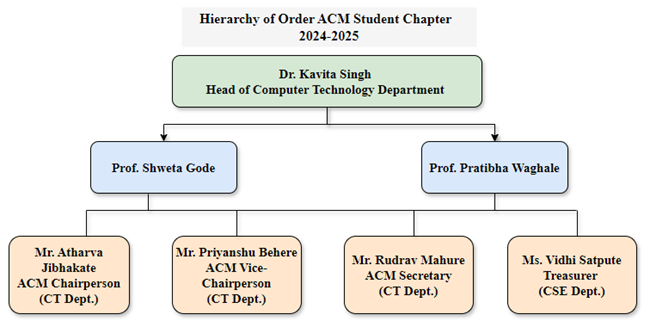
About Computer Technology Student Chapter (CTSC).
The Role of the chapter is to organize various extracurricular and co-curricular activities for students, which provides opportunities to develop leadership, social responsibility, and volunteerism.

Student Achievement
| Session | No. of Events Conducted under ACM SC | No. of Events Conducted under CTSC |
| 2023-2024 | 6 | 03 |
| Sr. No. | Name of Student | Sem Sec | Name of event | Competition | Organizing Body Date | Rank/Prize |
| 1. | Levish Bhoyar, Makarand Tighare, Paras Pethe, Radhika Bhoyar, Ved Deshkar | 6CT | Hackathon | SIH 2023 | Govt. of India | 1st and 1Lakh |
| 2. | Muhammad Shahnawaz Khan | 6 CT A | Kavyanjali | Hindi Literary Event | IIT,Kanpur & 21 Oct 2023 | 2nd Rank |
| 3. | Levish Bhoyar Makarand Tighare Paras Pethe | 6 CT B | Zarothon | Live Experiment competition | Amrita University, Chennai & 5th to 6th March 2024 | 2nd and 50k Prize |
| 4. | Levish Bhoyar Makarand Tighare Abhinav Lade | 6 CT B | Hack it sapiens | Live Experiment competition | Poornima College, Jaipur & 29 to 31 March 2024 | 7th Rank |
| 5. | Levish Bhoyar Makarand Tighare Abhinav Lade | 6 CT B | HACKENGERS | Hackathon | Livewire & 15 Jan 2024 | 1st Rank |
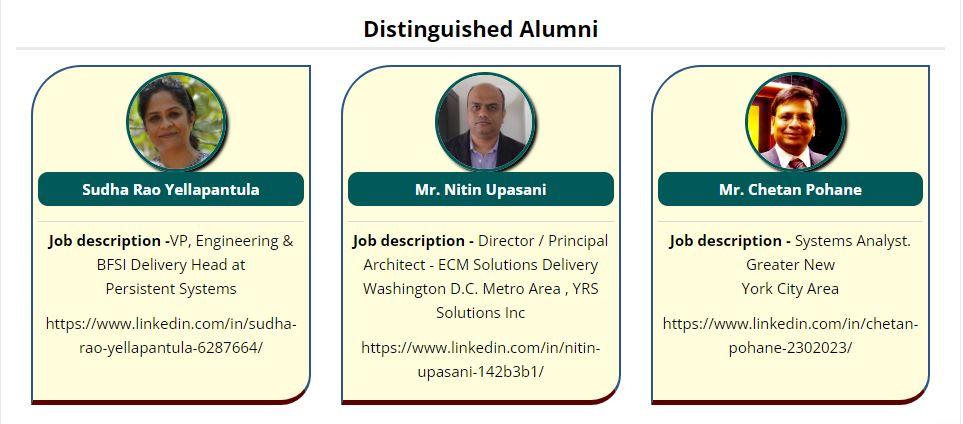
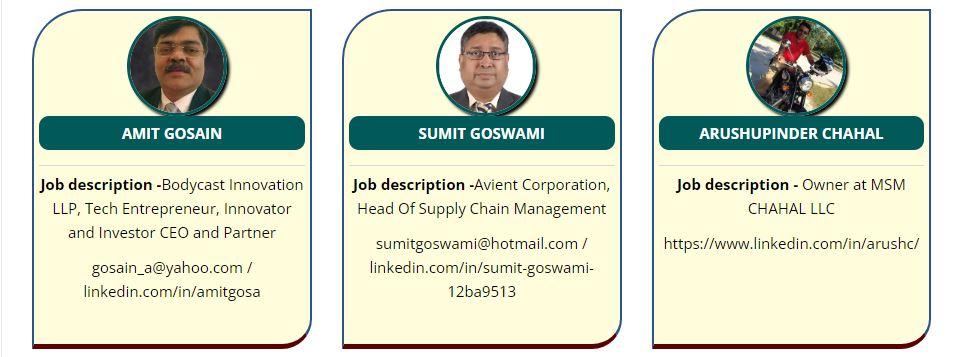
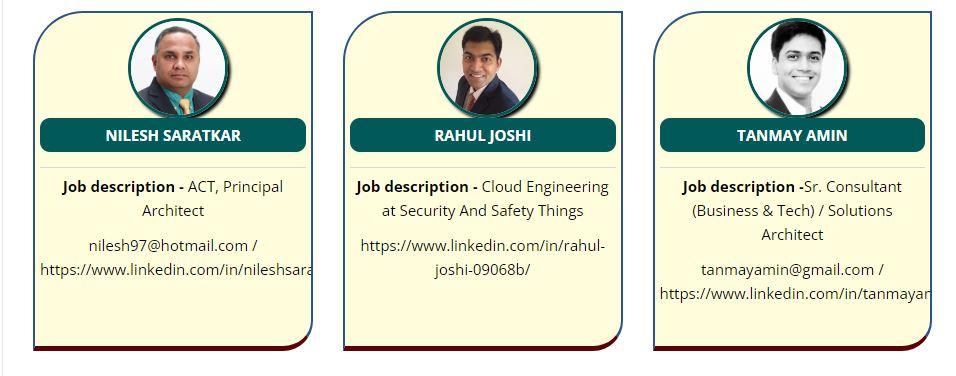
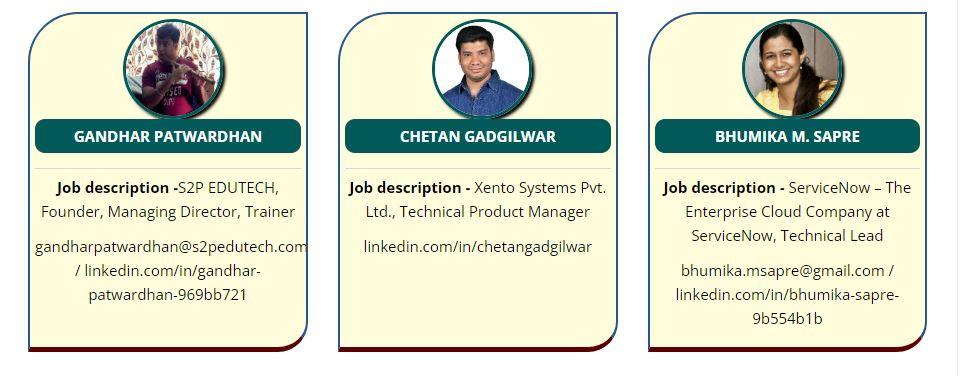
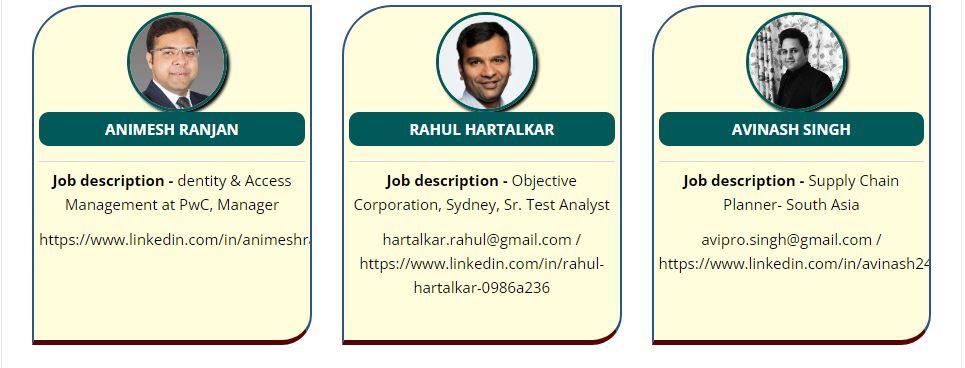
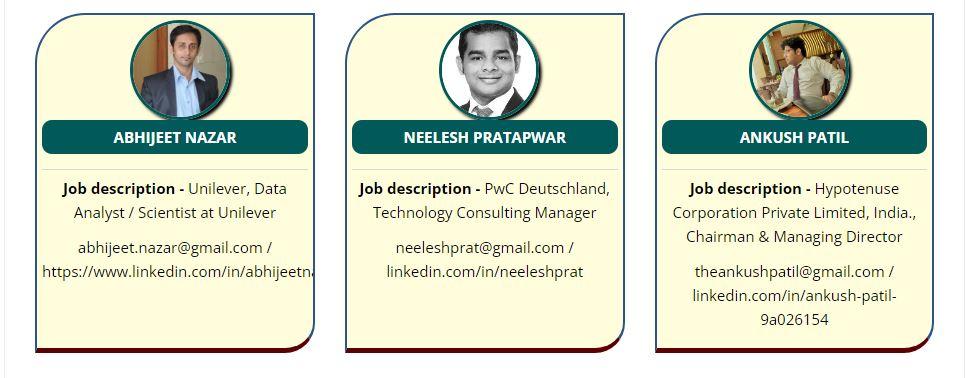

Events
| Years | No. of Events Conducted under ACM | No. of Events Conducted under CTSC |
| 2023-2024 | 5 | 15 |
| 2022-23 | 21 | 22 |
| 2021-22 | 03 | 13 |
| 2020-21 | 10 | 18 |
2023-24
| Sr. No. | Activity Name | Date | Beneficiaries | Type of Event |
| 1 | SDP on Generative AI | 30-04-2024 | 35 | Career Guidance |
| 2 | VAC on Programming and Logic Building | 17-2-2024 to 4-5-2024 | 150 | Skill Development |
| 3 | VAC on Core Competency Building | 10-2-2024 to 06-5-2024 | 170 | Skill Development |
| 4 | VAC on Entrepreneurship Development Program | 10-2-2024 to 06-5-2024 | 12 | Entrepreneurship |
| 5 | SDP on DevOps DI/CD PIPELINE | 21-03-2024 | 138 | Skill Development |
| 6 | Sampark conclave | 16-03-2024 | 43 | Career Guidance |
| 7 | Guest lecture on Research Methodology | 19-03-2024 | 160 | Skill Development |
| 8 | SDP on Data Science | 13-03-2024 | 65 | Career Guidance |
| 9 | Lecture on Nanoscience | 06-02-2024 | 73 | Career Guidance |
| 10 | Donation Drive | 13-01-2024 | 8 | Social Activity |
| 11 | Importance of Subjects in GATE | 10-01-2024 | 16 | Career Guidance |
| 12 | An International Level Technical Fest – Compufest 2K23 | 11/10/2023 to 13/10/2023 | 3100 | Technical Fest |
| 13 | Journey to Entrepreneurship | 09-11-2023 | 105 | Entrepreneurship |
| 14 | Profile Building and Resume Writing | 10-10-2023 | 99 | Skill Development |
| 15 | VAC on Networking and Cloud Computing | 5-8-2023 to 30-9-2023 | 145 | Skill Development |
| 16 | Nirmalya Collection | 28-09-2023 | 12 | Social Activity |
| 17 | Profile Building and Resume Writing | 26-09-2023 | 105 | Skill Development |
| 18 | Profile Building and Resume Writing | 21-09-2023 | 85 | Skill Development |
| 19 | Angel Investment /VC Funding Opportunity for Early Stage Entrepreneurs | 29-08-2023 | 89 | Entrepreneurship |
| 20 | Blood Donation Drive | 19-07-2023 | 112 | Social Activity |
2022-23
| Sr. No. | Date | Beneficiaries | Type of Event | |
| 1. | Bootcamp on C programming | 22-06-2023 to 24-06-2023 | 20 | Outreach Activity |
| 2. | Break the Query” SQL Based Contest | 27-05-2023 | 1329 | International Level SQL Contest |
| 3. | 30Hrs VAC on Power BI | 15-04-2023 to 21-05-2023 | 150 | Value Added Course |
| 4. | Seminar on How to plan for Start-up and legal & Ethical Steps | 16-05-23 | 92 | Seminar |
| 5. | An International Bootcamp on React Redefined – Progressing Towards Interactive Web Applications | 05-05-2023 & 06-05-2023 | 317 | International Level Bootcamp |
| 6. | Bootcamp on Website Development | 28-04-2023, 29-04-2023 & 02-05-2023 | 73 | Outreach Activity |
| 7. | SDP on Brush up Session on C Programming | 30-04-2023 | 53 | SDP |
| 8. | Bootcamp on Python Programming | 17-04-2023, 18-04-2023 & 19-04-2023 | 98 | Outreach Activity |
| 9. | Food Grains Donation Drive | 12-04-2023 | 15 | Social Activity |
| 10. | Bootcamp on C Programming | 06-04-2023, 10-04-2023 & 11-04-2023 | 31 | Outreach Activity |
| 11. | Stationary Kits Donation Drive | 08-04-2023 | 15 | Social Activity |
| 12. | Cloths Donation Drive | 27-03-2023 | 10 | Social Activity |
| 13. | Seminar on Graduate Admissions in the USA | 24-03-2023 | 149 | Seminar |
| 14. | SDP on Greedy & Dynamic Algorithm with time complexity analysis | 14-03-2023 | 142 | SDP |
| 15. | SDP on Calm se Kaam | 08-03-2023 | 168 | SDP |
| 16. | My Story – Motivational Session by Successful Entrepreneur/Start-up Founder | 15-02-2023 | 110 | Seminar |
| 17. | SDP on Internet of Things | 13-02-2023 and 14-02-2023 | 37 | SDP |
| 18. | SAMPARK Alumni Conclave | 04-02-2023 | 110 | Alumni Conclave |
| 19. | Seminar on MBA as a Career Option | 25-1-2023 | 133 | Seminar |
| 20. | National Level Coding Olympiad 1.0 | 24-01-2023 | 277 | National level Coding Contest |
| 21. | SDP on Python for Data Science | 21-1-2023 to 22-1-2023 | 81 | SDP |
| 22. | Computer Literacy Program | 07-01-2023 | 10 | Social Activity |
| 23. | SDP on Salesforce Technology | 24-12-2022 | 50 | SDP |
| 24. | 30 hrs. VAC on Power BI | 30-11-2022 to 4-12-22 | 140 | VAC / Certification Program |
| 25. | Seminar on Cloud Technology and InformationSecurity and it’s Future Opportunities | 22-11-2022 | 48 | Seminar |
| 26. | 30 hrs. Value Added Course & Certification Program on Advancement in Techniques used for Data Science | 10-9-2022 to 12-11-2022 | 156 | VAC |
| 27. | Workshop on Research Methodology | 3-11-22 and 11-11-22 | 110 | Workshop |
| 28. | Workshop on Computer Programming and IoT for Sai Ashram Students | 31-10-2022 | 30 | Outreach Activity |
| 29. | Guest Lecture on GIS | 20-10-2022 | 39 | Guest lecture |
| 30. | Symposium on Know-It-All | 19-10-2022 | 536 | Symposium |
| 31. | How to crack competitive exams by Career Launcher | 13-10-22 | 72 | Seminar |
| 32. | Seminar on Higher Studies | 12-10-2022 | 76 | Seminar |
| 33. | Seminar on Learn the Basics in Launching Your start-up | 4-10-2022 | 105 | Seminar |
| 34. | Nirmalya Collection | 09-09-2022 | 12 | Social Activity |
| 35. | Guidance Session on Higher Studies | 05-09-2022 | 82 | Seminar |
| 36. | An International Level Technical Fest – Compufest 2K22 | 1-09-2022 to 3-09-2022 | 1112 | International Level Technical Fest |
| 37. | Seminar on Intellectual Property Rights in Digital World | 22-08-2022 | 60 | Seminar |
| 38. | Seminar on Career Guidance | 22-08-2022 | 58 | Seminar |
2021-22
| Sr. No. | Activity Name | Date | Beneficiaries | Description |
| 1 | SAMPARK “Alumni Conclave” | 16-04-2022 | 138 | Others |
| 2 | Seminar on “What after B.Tech” | 20-04-2022 | 139 | Career Oriented |
| 3 | Expert Session by ACM Distinguish speaker on Data Science for Beginners | 12-03-2022 | 81 | Technical |
| 4 | LinkedIn Profile Building | 29-01-2022 | 90 | Others |
| 5 | Interview and Interpersonal Skills | 21-02-2022 | 158 | Personality Development |
| 6 | Design Thinking, Critical Thinking and Innovation Design | 02-12-2022 | 60 | Technical |
| 7 | Expert Session by ACM Distinguish speaker on Artificial Intelligence: Opportunities and Threats | 01-08-2022 | 78 | Technical |
| 8 | Web Development | 20-12-2021 | 20 | Technical |
| 9 | SDP on User interface and Graphics Design | 19-10-2021 | 158 | Technical |
| 10 | 15 Hrs Certificate Course on Angular 12 | 02-10-2021, 03-10-2021, 9-10-2021, 10-10-2021 | 277 | Technical |
| 11 | Webinar on Salesforce | 25-09-2021 | 158 | Technical |
| 12 | Induction Program | 18-09-2021 | 102 | Others |
| 13 | Cyber Security | 18-09-2021 | 88 | Technical |
| 14 | AI on Rise! | 08-08-2021 | 24 | Technical |
| 15 | 15 Hrs Certificate Course Advanced Technology for Resume Building | 07-08-2021, 14-08-2021 and 21-08-2021 | 138 | Others |
| 16 | Domain Specific Knowledge Classes | 19-07-2021 to 23-07-2021 | 114 | Technical |
2020-21
Events of CodingClub registered under the student CodeChef chapter
Sr. No. | Activity Name | Date | Beneficiaries | Description |
1 | The Eminence of Competitive Programming in your Career | 29/06/2020 | 234 | Speaker : Mr. Bhavy Jain, IIT BHU ICPC World Finalist 2020, Placed at Microsoft Redmond, CodeChef 6 Star Discussion on: 1. What is Competitive Programming 2. Benefits of Competitive Programming 3. Popular Competitions of Competitive Programming 4. Popular Sites for Competitive Programming 5. Resources for Competitive Programming |
2. | Webinar: on Competitive Programming Session 1: Getting Started | 9/07/ 2020 | 80 | Discussion on: introductory topics related to CP were covered including, basic IO, fast IO, structures of CP problem, Macros in C++, complexity estimation & introduction to linear data structures |
3. | Learning and Practice Aimed Long Contest: “YCCE Code Ladder | 12/07/2020 till 01/04/2021 | 93 | Practice problems based on the conducted sessions are added in some interval of 15-20 days. |
4. | Webinar: “Competitive Programming Session 2: Power of STL | 25/07/2020 | 100 | In this session, we covered some important containers and functions available in C++ STL, which are commonly used by Competitive Programmers for faster implementation. Graph implementation using vectors & easy and efficient implementation DFS traversal was also covered. |
5. | Contest: “CRACK-A-CODE 2.0” on July 31, 2020 | 31/07/2020 | 58 | Contest Link:https://www.codechef.com/CAC22020 This contest was exclusively for YCCE students and had problems based on the topics covered in CP sessions 1 & 2. As a support from CodeChef, they’ve credited 250 redeemable CodeChef Laddus in the CodeChef accounts of Top 2 contestants |
6. | CRACK-A-CODE Solution Discussion Session | 01/08/2020 | 40 | Discussion on solutions of CRACK-A-CODE 2.0 contest problems with the participants. |
7. | Webinar: “Competitive Programming Session 3: Basic Mathematics in Competitive Programming | 09/08/2020 | 70 | Bit manipulations techniques, primality testing, sieving algorithms, factorization, modular arithmetic and bitmask brute force approach for subset operations. Also discussion on previous year ICPC problems. |
8 | Open Team Contest: “Code Mates x1 | Number of Participating Teams (Globally): 697 | Contest Link: https://www.codechef.com/COMX2020 This was the first open contest organized by YCCE. It was a team contest of ICPC format. We had a great response from the CodeChef Community in this contest | |
9. | Contest: Learning Sprint | 17-19 Nov 2020 | 10(YCCE) + 15 (other) | Topics Covered: User Input, Output, Loops, Conditionals, Prefix Sums, etc. 17 & 18 November: Hands-on Programming & Problem Solving Sessions. 19 November: Gave some practice problems and revision material. 20 November to 30 November: For the final assessment, track-wise contests were organised by CodeChef, users were allowed to attempt them in any 1.5 hr window in this duration. (Contest Link: https://www.codechef.com/CCCLS002) |
| Events Conducted by CodeChef for all College Chapters | ||||
10. | Indian Programming Camp, 2020 | 20th November to 22nd November 2020 | 34 | CodeChef organised live classes, problem-solving sessions, and programming contests – all conducted by top programmers associated with CodeChef and Unacademy. At the end of the camp, participants were rewarded with IPC 2020 certifications. Topics Covered: Different topics were covered for each track, detailed list can be found here: https://www.codechef.com/ipc/camp/2020 |
11. | Speaker Session: “Roadmap to Competitive Programming | 29/11/2020 | 27 | ICPC World Finalist Deepak Gour guided the students through the roadmap for getting started with Competitive Programming and shared his journey of becoming an ICPC World Finalist. |
2020-21
CTSC and ACM Student Chapter Events:
Sr. No | Name of Event | Date | Student Participation |
1 | Valedictory of CTSC & ACM Student Chapters and Farewell to Final year students | 24-05-2021 | 101 |
2 | Academia, Industry & Research (AIR) Conclave 2.0 | 15-05-2021 | 85 |
3 | Training program on “MS-OFFICE” for non-teaching staff of YCCE | 30-04-2021 | 11 (Non-Teaching Staff) |
4 | Importance of Higher Studies | 20-03-2021 | 30 |
5 | Guidance session on “How to prepare for MBA and how to select the MBA Stream” | 22-02-2021 | 86 |
6 | Guidance session on “Pathway to Preparation for Studying Abroad” | 17-02-2021 | 66 |
7 | Various Events Under Students Activities at YCCE | 15-02-2021 | 166 |
8 | Webinar on Identifying Intellectual Property Component at Early Stage of Innovation | 8-12-2020 | 56 |
9 | SAMPARK – An Alumni Conclave | 24-10-2020 | 89 |
10 | Counselling session on Higher Education in US, UK, and Canada | 19-09-2020 | 40 |
11 | Kick off session on ACM | 12-09-2020 | 70 |
12 | Induction Program for III Sem students | 11-07- 2020 | 100 |
2019-20
CTSC and ACM Student Chapter Events
| Sr. No | Name of Event | Date | Student Participation |
1 | Induction Program for III Sem students | 13-07-2019 | 110 |
2 | Tree Plantation | 17-07-2019 | 25 |
3 | AARAMBH- Students’ Chapter (CTSC/ACM) Body Installation Ceremony | 20-07-2019 | 120 |
4 | Compufest-2K19 | 23-08-2019 to 24-08-2019 | Total 615 students participated in various events |
5 | Workshop on C for the students of Somalwar Nikalas | 19-08-2019 to 20-08-2019 | 48 |
6 | Nirmalya Collection | 12-09-2019 | 5 Students |
7 | Parent Teacher meet | 12-10-2019 | 22 parents |
8 | Blood Donation Camp | 03-02-2020 | 7 Students |
Center of Excellence

| Sr. No. | Name of CoE Facility | Name/Title of training Program Conducted | Date of Training | Offline/Online | No. of Hrs | No. of Faculty/Students |
| Training Completed | ||||||
| 1. | NVIDIA server | Two days training program on Transfer Learning | 12-4-2022 to 13-4-2022 | Online | 4 | 56 |
| 2. | MATLAB | One day online training program on “AI made easy using MATLAB” | 26-02-2022 | Online | 2 | 155 |
| 3. | NVIDIA Server | Three days hands-on training session on “NVIDIA Training” | 6-12-2021 to 8-12-2021 | Online | 9 | 39 |
| 4. | NVIDIA Server | one day training program on “NVIDIA admin” | 30-10-2021 | Online | 3 | 14 |
| 5. | MATLAB | Training on Signal Processing with MATLAB | 28-09-2021 | Online | 3 | 34 |
| 6. | IOT | Training program on “EMBEDDED SYSTEM DESIGN FLOW ON ZYNQ USING VIVADO” | 16-09-2021 to 17-09-2021 | Online | 7 | 15 |
| 7. | NVIDIA Server | AIML related Joint Online Two Weeks Certificate Program organized by NIT Warangal | 22-8-2021 to 3-9-2021 | Online | 30 | 15 |
| 8. | NVIDIA Server | Two days training for AI cluster user and basic AI/DL training | 23-07-2021 to 24-07-2021 | Online | 10 | 23 |
Sr. No. | Tool / software received | Company | Impact | |
1 | MATLAB and Simulink Campus-Wide License | Mathswork | Faculty members and students of all the branches can have training as well can develop projects in AI, ML, and data science | |
2 | DGX Workstation | NVDIA | Faculty members and students of all the branches can have training as well can develop projects in ML using NGC cloud | |
3 | IoT kits | Gold kits | CDAC, Banglore | Faculty members and students of all the branches can have training as well can develop projects using the IoT technology |
| Pynq board | COREL | |||
| ESP32 IOT boards | Vsinformatics, Nagpur | |||
Activities conducted at CoE by Computer Technology Department
| Sr. No. | Name of CoE Facility | Name/Title of training Program Conducted | Date of Training | Offline/Online | No. of Hrs | No. of Faculty/Students |
Training Completed | ||||||
1 | Matlab | Matlab Onboarding session (online): | 5th January 2021 | Online | 2 | 50 Faculty |
2 | Matlab Designated/individual license creation and related training to each dept. | 14th January 2021 | Offline | 4 | 15 Faculty | |
3 | IOT Trainer Kits | ESP 32 IOT kit training session 1 | 3rd February 2021 | Offline | 4 | 17 Faculty |
4 | IOT Trainer Kits | ESP 32 IOT kit training session 2 | 10th February 2021 | Offline | 4 | 17 Faculty |
5 | Nvidia Server | Training on Nvidia (Introduction) | 11-Feb-21 | Online | 2 | 25 Faculty |
6 | Matlab | Two Days Training Program on Data Science and AI with MATLAB | 15/02/2021 to 16/02/2021 | Online | 9 | 25 Faculty & 8 Students |
7 | Nvidia Server | Applications of NGC | 02-Mar-21 | Online | 3 | 56 Students & 7 Faculty |
8 | Matlab | Certificate course on Applications in AI, ML, DS | 22-03-2021 to 2 April 2021 | Online | 30 | 70 Students |
9 | IOT Trainer Kits | Webinar on IOT Use Cases for medical practitioners | 27-Mar-21 | Online | 2 | 150 Faculty & Students |
10 | IOT Trainer Kits | IOT kits training by CDAC, Banglore | 31/03/2021 to 1/04/2021 | Online | 6 | 70 Faculty & Students |
Course Practical | ||||||
1 | IOT Trainer Kits | 6 semester practicals on ESP 32 Kit | 17/03/2021 & 25/03/2021 | Online | 2 | 58 Students & 2 Faculty |
2 | IOT Trainer Kits | 8 semester practicals on ESP 32 Kit | 16/03/2021 & 9/03/2021 | Online | 2 | 35 Students & 2 Faculty |

